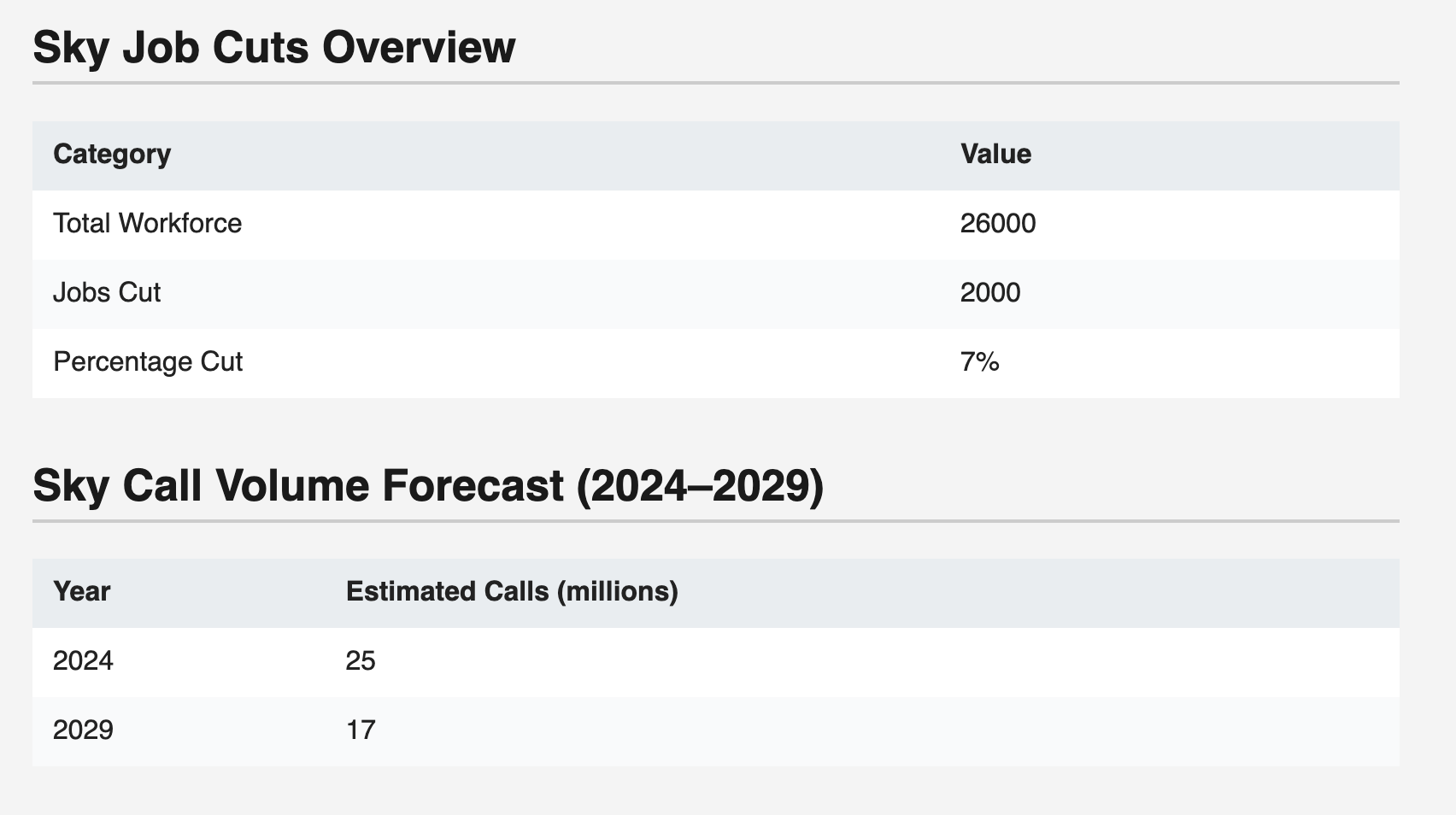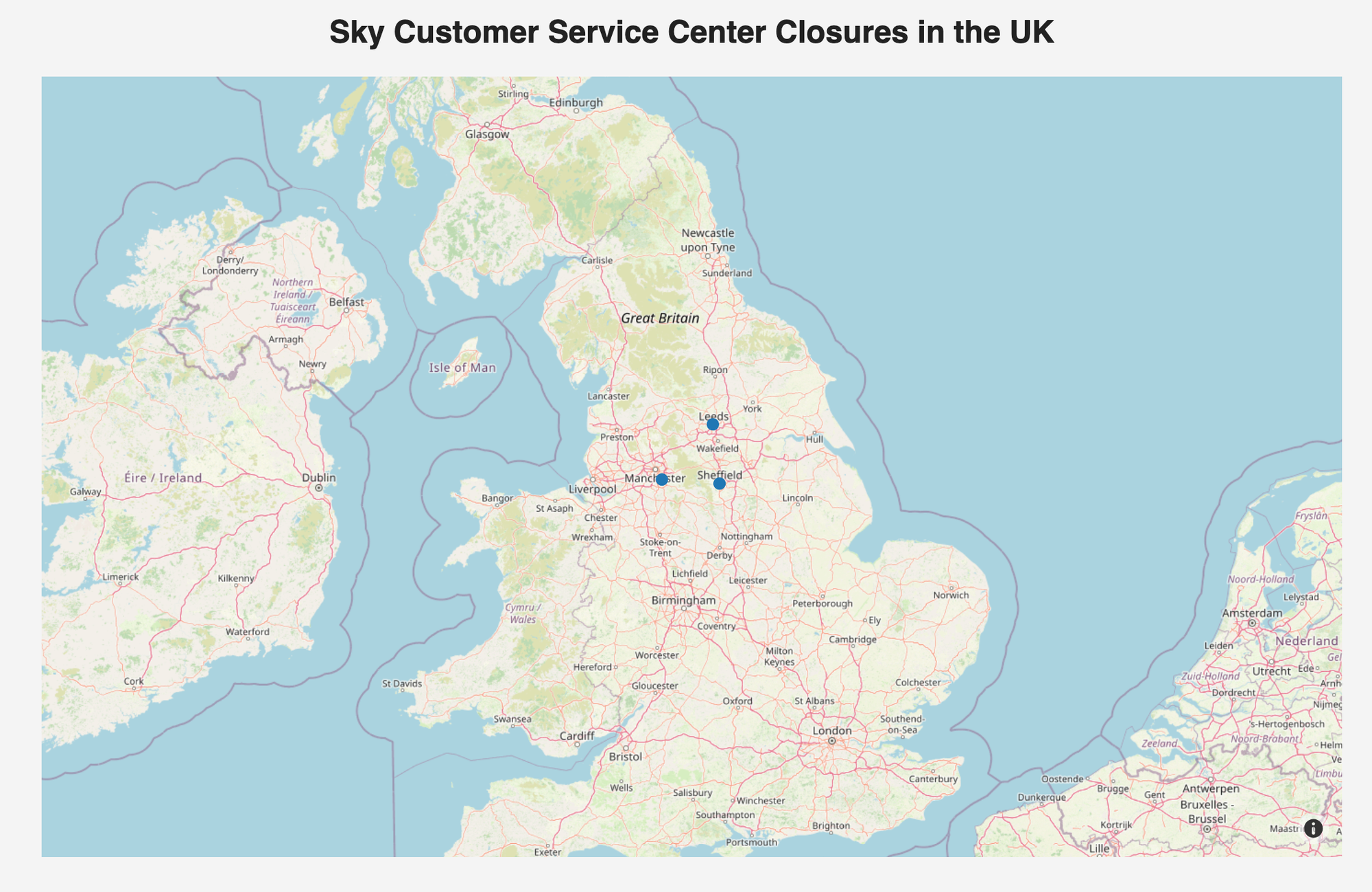
As the wave of digital transformation surges through the UK’s telecom industry, Sky is taking a decisive—and disruptive—step forward. The company’s recent announcement to cut 2,000 jobs, accounting for 7% of its workforce, has sparked a fresh debate around the future of human-led customer service.
At the core of the move is efficiency. Sky is shuttering three of its ten customer service centers—in Stockport, Sheffield, and Leeds—and scaling back two others. The transition comes with a clear message: customer service is going digital, and AI will lead the way.

The shift is substantial. Currently, Sky handles around 25 million customer calls each year. By 2029, that number is expected to drop to 17 million as more customers turn to automated digital tools for routine queries—like paying bills or managing contracts. In parallel, Sky is doubling down on its self-service infrastructure: expanding its Sky app, investing in text-based live chat, and introducing tools powered by AI to proactively diagnose and resolve issues.
While some roles are expected to be moved abroad to support 24/7 operations, the broader trend is unmistakable: human roles are being replaced by software.
For many, this raises a simple question: is Sky down, or is this just what evolution looks like in the service economy?
Sky argues that the decision reflects consumer behavior. After surveying 10,000 users, the majority expressed a desire for flexible, always-available service channels—phone, email, chat, and app. And for those asking how to contact Sky today, the answer increasingly lies not in a phone number but in an interface.
Still, the human impact is hard to ignore. Engineers and call center employees—once the front line of Sky’s customer promise—are now bearing the brunt of an efficiency-driven strategy. This move follows a prior cut of around 1,000 roles, particularly affecting legacy positions like satellite dish installers, as Sky pivots towards streaming and app-first delivery.
To support this transformation, Sky is making a multimillion-pound investment in a new Centre of Excellence for customer service in Scotland. This facility aims to serve as a nerve center for predictive customer experience—solving problems before users even encounter them.
The irony is that while Sky is improving its AI infrastructure to better serve customers, it’s also dealing with a surge in search interest around questions like “why is my Sky broadband not working” and “how do I contact Sky.” These real-time signals show the friction that comes with any digital shift, no matter how well-intended.
Sky remains the UK’s least-complained-about telecom provider for 13 consecutive years, according to Ofcom. But as more services move online and the physical footprint shrinks, the question remains: can automation preserve that track record—or will customers start to miss the humans behind the headset?
In the new era of broadband, AI is not just answering questions—it’s replacing the people who used to.




















Discussion